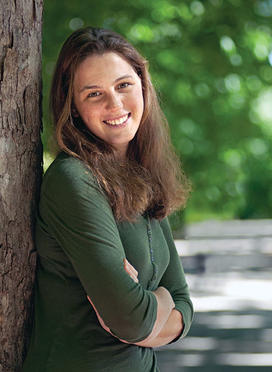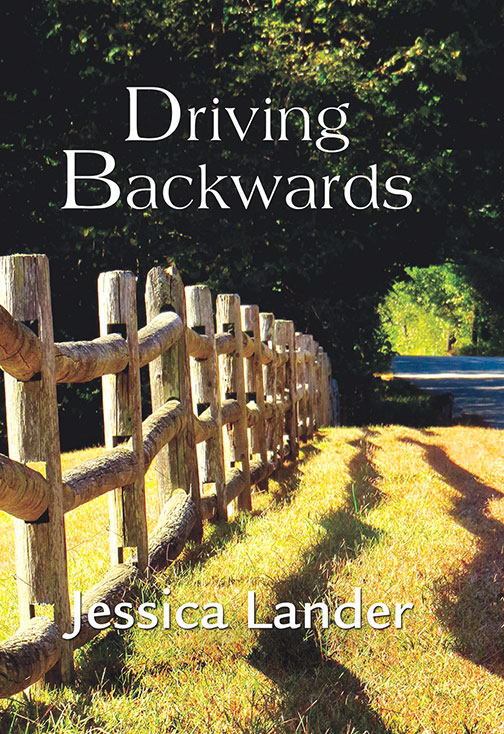At Princeton, Jessica Lander ’10 took the legendary class in creative nonfiction taught by John McPhee ’53. As a writer for The New Yorker, McPhee told students, he took hiking trips with geologists and traveled for weeks with truck drivers to deepen his understanding of his subjects’ lives. Inspired, Lander decided to apprentice herself to those she wanted to write about: the inhabitants of a small New Hampshire town.
So she hunted for teal-tinted chicken eggs with a couple raising animals on a two-acre parcel of land; bottle-fed newborn calves on a farm operated by four generations of the same family; harvested blueberries while blasts from a sound cannon kept animal foragers away; and ladled fresh goat cheese with a woman who homeschools 10 children. The stories she gathered about Gilmanton, N.H. — where she had spent summers for the better part of two decades, living in a house built in 1791 — are assembled in Driving Backwards (TidePool Press).

Many of Gilmanton’s 3,777 residents exude a ruggedness that long has defined the area. Once a bustling manufacturing town, its factories shut down one by one over the years. Lander writes about David Bickford, who, with his wife, Lizzie, greeted her family when they moved in with a fruit pie and a never-ending supply of stories. He died in 2013, just shy of 100. “These were stories that weren’t going to get recorded,” Lander says.
A half-century ago, Gilmanton briefly became famous as the source of the 1950s literary (and later film and television) phenomenon Peyton Place. The book’s author, Grace Metalious, a Gilmanton resident, parlayed the town’s secrets into the scandalous novel. For a time, people trekked there to gawk and ask residents which of the book’s tales were true. Gilmanton became “the epitome of everything backward about small-town America,” Lander says. Metalious, wracked by alcoholism, died at 39 and was buried in “an ostracized corner” of the town graveyard, Lander says. Today, the library’s sole copy of the book is kept under lock and key “to prevent it from being stolen or burned,” she says.
Lander began the book as an undergraduate, working through stints as a teacher in Tanzania, Thailand, and Cambodia, and in her hometown of Cambridge, Mass. She typically wrote in the summer, then set the manuscript aside for nine months, which “enabled me to look at my work with a critical eye,” she says. “I came to love that these are the kinds of stories we often take for granted, the quieter stories that never make it to the front page of The New York Times.” Now studying for a master’s degree in education policy at Harvard, Lander found that on her book tour, people from as far away as Arkansas and Wyoming told her, “This is my town.”
What she’s reading: Indonesia, Etc.: Exploring the Improbable Nation, by Elizabeth Pisani. “I first traveled to Indonesia when I was 9, and have returned many times since. Pisani’s book fills in the history of this vast nation of 13,000 islands and 300 ethnic groups.”













No responses yet